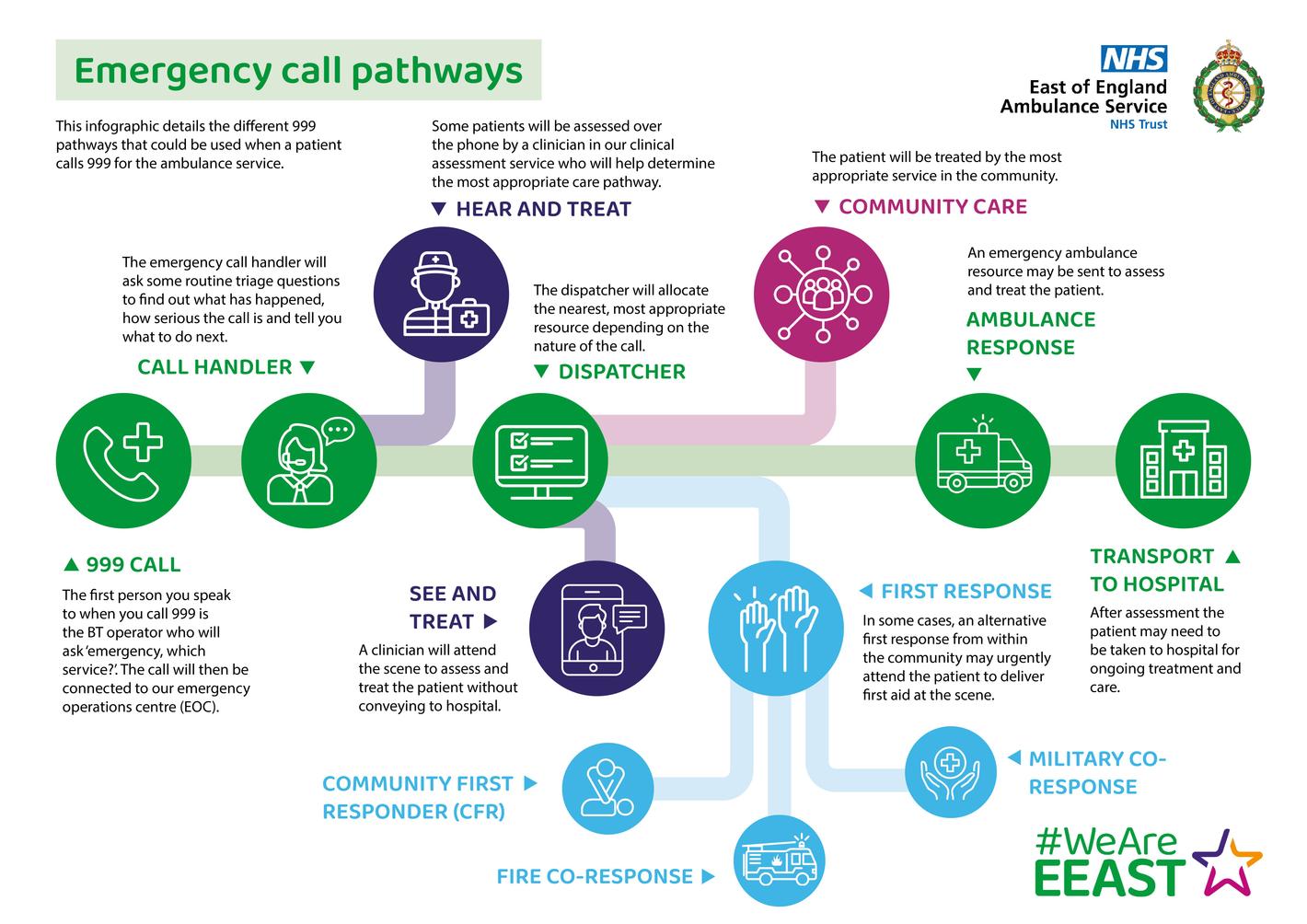When to call 999
In a high stress situation, it can be hard to know who to ask for help. But if you call 999 and it’s not an emergency, you could be delaying us from responding to someone who needs our help more.
If you need an ambulance, you’ll be patched through to our call handlers. They’ll ask you:
- if the patient is conscious and breathing
- what exactly has happened - explain the illness and/or injury
- the address of the emergency
- patient details including name, age and medical history (if offered/known).
You may need to stay on the phone whilst the ambulance is dispatched. Our call handler will provide any necessary life saving instructions to help the patient until we get there. This covers off things such as providing bleeding control, or giving CPR instructions.
Answering these questions will not impact how quickly we’ll arrive. But it does mean you might be able to administer first aid in the meantime.
Stay with the patient until we arrive and try to remain calm. Tell us if the patient’s condition or location changes.
If you’re at home or at work, you should:
- check that your house number or name is clearly visible from the roadside
- get someone to open the doors or stand outside to signal us when help arrives
- write down the patient's GP's details (if you know them)
- collect any medication they may need
- lock away any family pets.
If you’re on the street, stay with the patient until the ambulance or rapid response vehicle arrives. If you’re in your car, turn your hazard lights on.
Remember that we’re here to help and any violence towards our ambulance crews will not be tolerated.
If we are able to send a community first responder, they may arrive before ambulances do. Help may arrive in:
- a rapid response vehicle
- a cycle response unit in city centres and on beaches in the summer
- their own car
We may also send:
- a single-crewed response vehicle with an emergency care practitioner, paramedic or emergency medical technician
- the air ambulance
- an emergency doctor
If you’ve had to contact our 999 emergency service recently, we’d like to hear from you. Your feedback will help us to improve our service and ultimately save more lives.
Complete our Emergency Services Patient Experience Survey.

